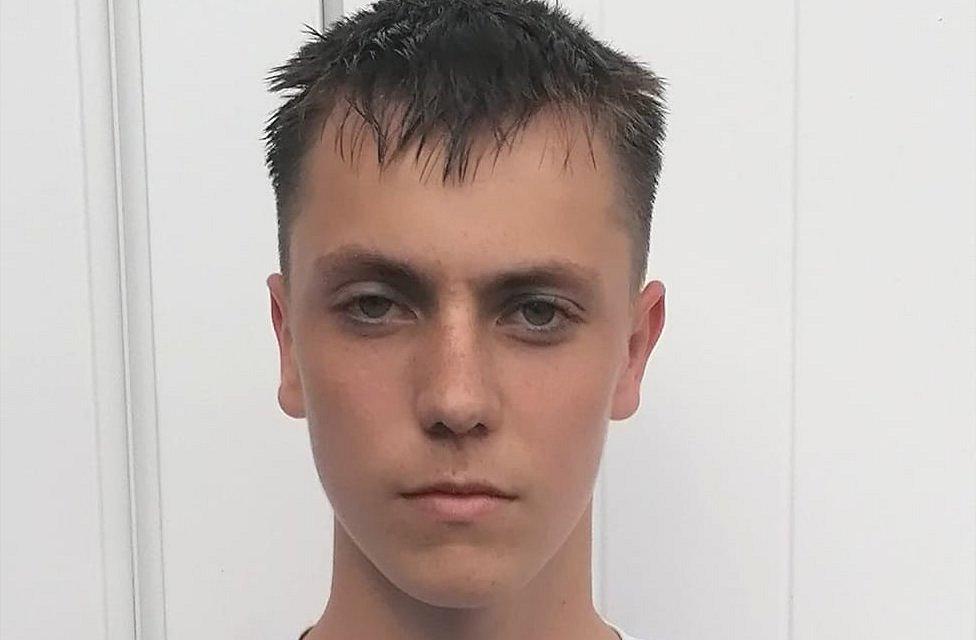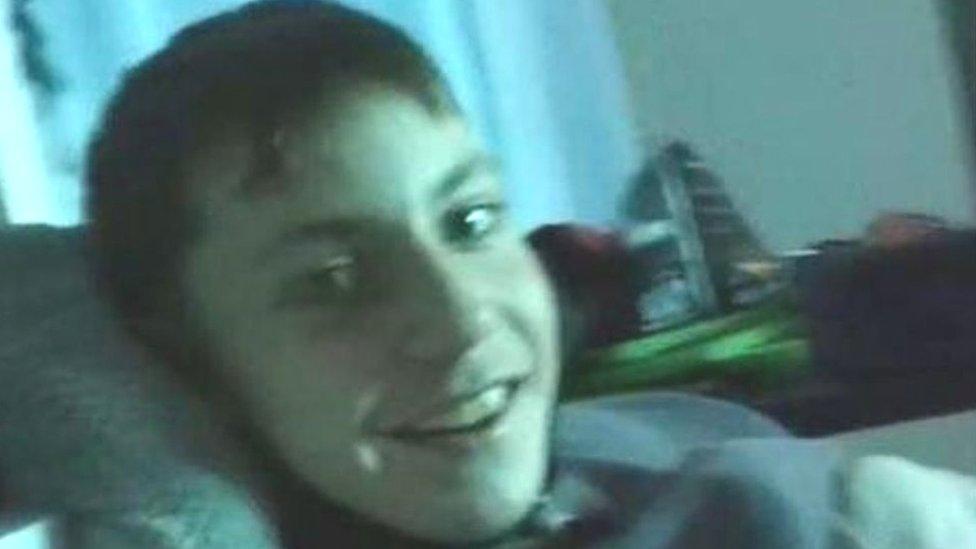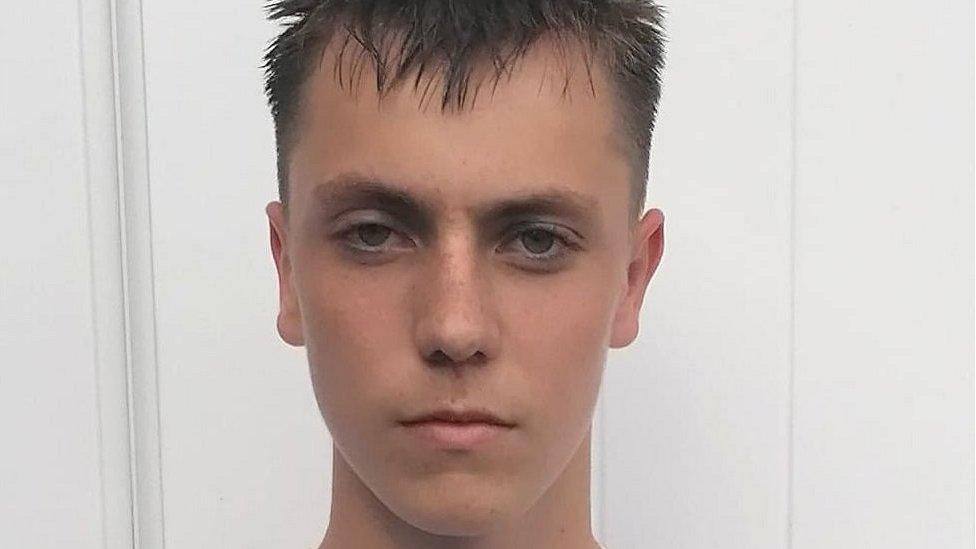Tomasz Oleszak: Accused teen made up attack to justify stabbing
- Published

Tomasz Oleszak died in hospital the day after he was injured
A teenager who fatally stabbed another boy made up being attacked to justify his use of a knife, a court has heard.
Tomasz Oleszak, 14, suffered an 8cm-deep wound to his chest when he was stabbed in Gateshead in October.
A 15-year-old boy, who was 14 at the time, has denied murder and claimed he was attacked by a gang.
In their closing speeches, prosecutors told Newcastle Crown Court the boy had intended to stab Tomasz while defence lawyers said it was an accident.
Jurors previously heard the boy made a decision on the spur of the moment to take a steak knife with him when he left home at about 17:00 on 3 October.
When asked why he took it, the boy said for "reassurance" although he also said he was not expecting any trouble that night.
He went to the Springwell area to meet a 14-year-old girl and was walking her home through Whitehills Nature Park when she alerted him to a group of youths following them, the court has heard.

Tomasz's accused killer said he stabbed him by accident
The boy said he turned to confront them hoping to scare them off, but about five attacked him and grappled him to the ground.
The youth claimed he pulled the knife out in a bid to scare them off and started waving his arms around, accidentally stabbing Tomasz and slashing the coat of another boy in the heart area.
He later hid the knife in bushes and messaged a friend to say he would have it "melted", the court heard.
Prosecutor Mark McKone KC said he did not claim the other group was "blameless" as there had been some discussion of them hitting the boy.
But the boy became the "aggressor" when he drew the knife and he "lied" about being attacked, Mr McKone said.
'Important lie'
"This beating is disputed by all the prosecution witnesses," Mr McKone said, adding the boy "did not have injuries anywhere on his face or body apart from his thumb".
Mr McKone said: "If [the boy] is correct [about the attack], he was punched and kicked by a large number of fit young men without being injured at all."
He said the boy "could not or would not explain why he chose to take a knife out" with him, adding: "The prosecution say [the boy] took that knife out hoping he could use it to stab someone."
Prosecutors said there had been an issue the day before when the boy and girl had walked past a larger group, one of whom appeared to mock the way he walked and another heard to call the girl a "slag".
The boy told jurors he did not see the mocking walk or hear the comment, but Mr McKone said that was "an important lie" which was "at the centre of why he took the knife out and stabbed Tomasz".
'Self defence'
In his closing speech, the boy's lawyer Peter Makepeace KC urged jurors to remember the youth was 14 at the time and believed he was being attacked by a group.
He said there was "incontrovertible proof that there was a plan to attack" the defendant and the group had a "pack mentality".
Mr Makepeace said although his client's decision to carry a knife that evening was "the most stupid decision", he had been attacked "by a gang of young people in the pitch black in an isolated spot".
He said "everybody caught in that situation is likely to panic" and "react instinctively", let alone a 14-year-old who did not have the "maturity of thought or experience of life to draw on".
He said it happened within 10 seconds with the boy "frightened" and "not knowing what's going to come next or where it's going to come from".
Mr Makepeace said the youth pulled the knife and was "flailing out indiscriminately in an act of self defence".
The boy's actions afterwards - hiding the knife, not contacting police, lying to people about his involvement and whereabouts - were in "almost every single regard utterly wrong", Mr Makepeace said.
The youth made "bad decision after bad decision" but "being 14 and being scared and making bad decisions go hand in hand", the boy's lawyer said.
He said acting with "fake bravado" could be a "defence mechanism" and many a teenager's "first instinct" would be to "stick your head in the sand", "deny, deny deny" and hope the problem goes away.
The trial continues.

Follow BBC North East & Cumbria on Twitter, external, Facebook, external and Instagram, external. Send your story ideas to northeastandcumbria@bbc.co.uk, external.
Related topics
- Published6 April 2023

- Published5 April 2023

- Published4 April 2023

- Published3 April 2023

- Published28 March 2023

- Published22 March 2023
